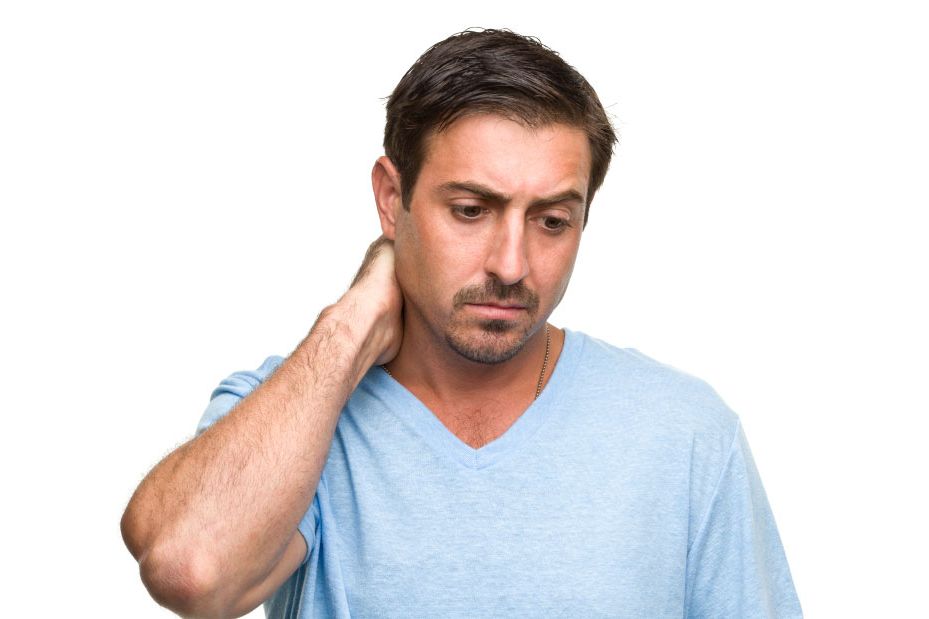What are the ways to improve your mental health? Here are 8 natural remedies to treat mental illness and 14 signs of mental disorder you need to know.
World Health Organization (WHO) defines mental health as “a state of well-being in which an individual realizes his or her own abilities, can cope with the normal stresses of life, can work productively, and is able to make a contribution to his or her community.”
The WHO stress that mental health is “more than just the absence of mental disorders or disabilities.” Peak mental health is about not only avoiding active conditions but also looking after ongoing wellness and happiness.
They also emphasize that preserving and restoring mental health is crucial on an individual basis, as well as throughout different communities and societies the world over.
In the United States, the National Alliance on Mental Illness estimates that almost 1 in 5 adults experience mental health problems each year.
In 2017, an estimated 11.2 million adults in the U.S., or about 4.5% of adults, had a severe psychological condition, according to the National Institute of Mental Health (NIMH).
We cannot emphasize enough how significant having good mental health is. It ensures your overall well-being and helps you manage everyday difficulties in the most healthy way.
A disturbing emotional or psychological state can take away the enjoyment from your life and can throw you in the darkness that can further make you feel lonely, stressed, depressed, and can push you towards committing suicide.
There is a lot of stigmas attached to mental health conditions and that creates a barrier in the timely diagnosis of these conditions leading to increased prevalence of death due to psychological disorders.
In this article, TheVibely will share with you:
- What causes a mental health disorder?
- What are the types of mental health problems?
- Emotional symptoms of mental health problems
- Physical symptoms of mental health problems
- Short-Term and Long-Term Effects of Mental Health Instability
- What are the 14 early signs of poor mental health?
- Treatment: 8 ways to improve your mental health
- FAQs about mental health treatment and more others.

What Causes a Mental Health Disorder?
Changes in brain chemistry from substance abuse or changes in diet can also cause mental disorders. Psychological factors and environmental factors such as upbringing and social exposure can form the foundations for harmful thought patterns associated with mental disorders. Only a certified mental health professional can provide an accurate diagnosis of the causes of a given disorder.
What Are the Types of Mental Health Disorders?
The most common types of mental illness are as follows:
1. Anxiety disorders
2. Mood disorders
3. Psychotic disorders (such as schizophrenia disorders)
4. Attention deficit hyperactivity disorder (ADHD)
5. Bipolar disorder
6. Depression
7. Eating disorder
8. Trauma-related disorders (such as post-traumatic stress disorder)
9. Substance abuse disorders
10. Personality disorders
Emotional Symptoms of Mental Health Problems
1. Changes in mood
2. Erratic thinking
3. Chronic anxiety
4. An exaggerated sense of self-worth
5. Impulsive actions
Physical Symptoms of Mental Health Problems
Short-Term and Long-Term Effects of Mental Health Instability

What are the 14 early signs of poor mental health?
There is no physical test or scan that reliably indicates whether a person has developed a mental illness. However, people should look out for the following as possible signs of a mental health disorder:
- withdrawing from friends, family, and colleagues
- avoiding activities that they would normally enjoy
- sleeping too much or too little
- eating too much or too little
- feeling hopeless
- having consistently low energy
- using mood-altering substances, including alcohol and nicotine, more frequently
- displaying negative emotions
- being confused
- being unable to complete daily tasks, such as getting to work or cooking a meal
- having persistent thoughts or memories that reappear regularly
- thinking of causing physical harm to themselves or others
- hearing voices
- experiencing delusions

Treatment: 8 ways to improve your mental health
There are various methods for managing mental health problems. Treatment is highly individual, and what works for one person may not work for another.
Some strategies or treatments are more successful in combination with others. A person living with a chronic mental disorder may choose different options at various stages in their life.
The individual needs to work closely with a doctor who can help them identify their needs and provide them with suitable treatment.
Treatments can include:
1. Psychotherapy, or talking therapies
This type of treatment takes a psychological approach to treating mental illness. Cognitive-behavioral therapy, exposure therapy, and dialectical behavior therapy are examples.
Psychiatrists, psychologists, psychotherapists, and some primary care physicians carry out this type of treatment.
It can help people understand the root of their mental illness and start to work on more healthful thought patterns that support everyday living and reduce the risk of isolation and self-harm. Read more about psychotherapy here.
2. Medication
Some people take prescribed medications, such as antidepressants, antipsychotics, and anxiolytic drugs.
Although these cannot cure mental disorders, some medications can improve symptoms and help a person resume social interaction and a normal routine while they work on their mental health.
Some of these medications work by boosting the body’s absorption of feel-good chemicals, such as serotonin, from the brain. Other drugs either boost the overall levels of these chemicals or prevent their degradation or destruction. Find out more about antidepressant medications here.
3. Self-help
A person coping with mental health difficulties will usually need to make changes to their lifestyle to facilitate wellness.
Such changes might include reducing alcohol intake, sleeping more, and eating a balanced, nutritious diet. People may need to take time away from work or resolve issues with personal relationships that may be causing damage to their mental health.
People with conditions such as anxiety or depressive disorder may benefit from relaxation techniques, which include deep breathing, meditation, and mindfulness.
Having a support network, whether via self-help groups or close friends and family, can also be essential to recovery from mental illness.
4. Surround Yourself With Positivity
This is in your control. You need to stay miles away from any kind of negativity as it contributes to mental health problems. Be a self-motivator and understand self-worth. You are unique and can achieve everything in life. This is what you need to tell yourself. Always think about the positives of a situation and try to look for the solution. You may fail once or twice or even multiple times but your failure will only help in becoming successful as you would know at the end what’s not working for you. Be generous to yourself and build confidence to deal with anything.
5. Exercise
We know this is the most commonly advised thing to do to improve mental health. But, that’s only because it is therapeutic and plays a significant role in boosting your psychological health. When you indulge in exercise, your body releases mood-boosting and stress-relieving hormones called endorphins, that help in feeling fresh and happy. Exercise is a powerful antidote to depression, stress, and anxiety. You can also do yoga asanas to calm your mind and make it stress-free.
6. Eat Mental Health Boosting Foods
Foods are basically categorized into two parts namely healthy and unhealthy foods. Eating unhealthy food items like sugary drinks, pizza, white bread, fried and grilled food, pastries, cookies, French fries, etc. not only affects your physical health but mental health too. They can block your ability to think positively and would create toxins in the body that can cause inflammation, reduce your body cells’ ability to absorb nutrients, etc. This can further lead to symptoms like anxiety and depression.
That’s why you must include healthy food in your daily diet and nourish your brain. Having carbohydrate-rich food items increases the secretion of serotonin that has a calming effect on your mind. Eating protein-rich foods helps in the secretion of norepinephrine, dopamine, and tyrosine that help you remain alert. Also, including food items rich in omega-3 fatty acids in your daily diet can improve mood and help in better cognitive function.
7. Share Your Feelings
Keeping your emotions and feelings to yourself can lead to an accumulation of toxins in the body and that contributes to stress and anxiety.
To improve your emotional well-being, you need to confide in people you trust. Talk to them, share what you feel, and listen to what they advise. Believe us, you will feel much better. Also, socializing makes you feel happy and relaxed. We are social animals and so must keep interacting. Without socializing, we cannot exist.
8. Sleep Enough
Sleep a significant part of our lives. It serves various purposes. It not only repairs your damaged cells and helps in healing but also keeps your mind functional. Without taking proper sleep, you won’t be able to concentrate, think, and act. A lack of enough sleep can affect your psychological health in ways you cannot even imagine. Sleep deprivation creates stress, headache, and harms your mood.
Therefore, you must practice good habits to get better sleep. Do not expose your eyes to blue light an hour before bedtime and restrict yourself from having caffeine-containing drinks in the morning and at night too.

FAQs about mental health treatments and others
Is There a Test or Self-Assessment I Can Do?
Also, online tests are not comprehensive, so they do not check for all possible symptoms. Only a face-to-face session with a qualified mental health professional can begin to diagnose a mental health disorder with any degree of accuracy because that professional has an outside viewpoint and can pick up on subtle cues.
Medication: Drug Options for Mental Health Issues
Mental Health Drugs: Possible Options
Mood stabilizers such as lithium tablets are used to treat bipolar disorder, as are anticonvulsants like Depakote. Antipsychotics like olanzapine or clozapine are used to treat schizophrenia or psychotic depression.
Medication Side Effects
Other side effects can occur; each person’s body and brain chemistry is unique, and it is impossible to predict with certainty how a given medication will affect you or how well it will work. People who are prescribed these medications should regularly communicate with their doctors and notify them of any side effects.
Drug Addiction, Dependence, and Withdrawal
The withdrawal process can exacerbate the original mental illness because of the brain’s sudden loss of some chemicals such as serotonin, dopamine, and other endorphins. In severe cases, the person may need to be placed in a drug rehab facility to detox from prescription medication.
Medication Overdose
Some signs of overdose can include seizure, coma, slowed heartbeat, or extreme paranoia. If these signs are present, immediately call 911 or your local Poison Control Center and have the prescription on hand if possible.
Depression and Mental Health
Dual Diagnosis: Addiction and Mental Health Disorders
Getting Help for a Mental Health Issue
An appointment with a mental health professional will usually include an interview and subsequent evaluation to determine the most obvious symptoms and to ascertain the type and severity of the mental disorder. In certain cases, an intervention may be required from family and friends.
Conclusion
Mental health refers to cognitive, behavioral, and emotional well-being. It is all about how people think, feel, and behave. People sometimes use the term “mental health” to mean the absence of a mental disorder.
Mental health can affect daily living, relationships, and physical health.
However, this relation also works in the other direction. Factors in people’s lives, interpersonal connections, and physical factors can all contribute to mental health disruptions.
Looking after mental health can preserve a person’s ability to enjoy life. Doing this involves reaching a balance between life activities, responsibilities, and efforts to achieve psychological resilience.
Conditions such as stress, depression, and anxiety can all affect mental health and disrupt a person’s routine.
Although the term mental health is in common use, many conditions that doctors recognize as psychological disorders have physical roots. It is advisable to talk to a health practitioner for treatments and knowledge on mental health, illness, and disorder.







